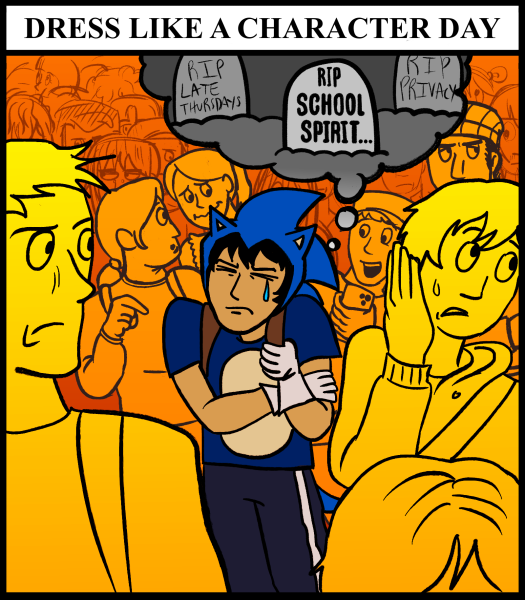SAT change angers students
February 19, 2016
Since the beginning of junior high we’ve all been preparing for one thing: the ACT, the ultimate college admissions test in this part of the country. Every year, juniors across the district stress and pour hours into studying because it is essentially the most important test in all of high school.
But it’s all being flipping on us. Current freshmen and sophomores in District 214 will instead be taking the SAT, a test they haven’t been prepared for. While response has generally been mixed, high achievers and students working hard to do well have had the same reaction. To put it simply: we’re pretty annoyed.
Staff Editorial
Now let’s be rational. We’re sure there is a lot of crossover between the content of the two tests. The SAT doesn’t even have a science portion! Great! Sounds easier, right? Well, when it comes down to it, the two tests are different at their cores. While the ACT is a content-based assessment with straightforward questions, the SAT is based on critical thinking with trickier questions.
The Explore test (8th grade), the PLAN test (freshman year), and the iACT (sophomore year) are all based on the kinds of questions to be expected on the ACT. This sudden shift isn’t exactly fair to students who have been preparing for something else.
A majority of the sophomore class teachers, who, along with freshmen and junior teachers, are affected the most, either don’t know enough about the differences between the tests to comment or agree that a midstream change is unfair.
There is talk about a free ACT being offered in addition to the SAT for current freshmen and sophomores, but the problem is that if there is an immediate change in the curriculum that focuses more on SAT type scenarios, current students won’t be fully prepared for either test and the scores will drop, plummeting the school’s average numbers.
What doesn’t make sense about this is that there is clearly a better way to approach a new test. Instead of an intensely frustrating gear change that puts everyone at a disadvantage, the state should have worked with the school districts to implement a gradual change in which junior high school students are taught the skills necessary for the SAT. This type of learning would carry over into their high school careers so that the switch wouldn’t actually be made district wide until those junior high students become juniors in high school. This means the lower class men at EG would still take the ACT. It would also give teachers more time to become accustomed to the new system.
Look, the SAT isn’t the end of the world. It’s not like students won’t be able to get into college as we’ve heard so many exclaim throughout the halls. It’s just that a lot more work is going to have to be done in order for some students to achieve the high standards they’re capable of. It’s certainly not something any of us are happy about, but it’s something we all have to get used to.






